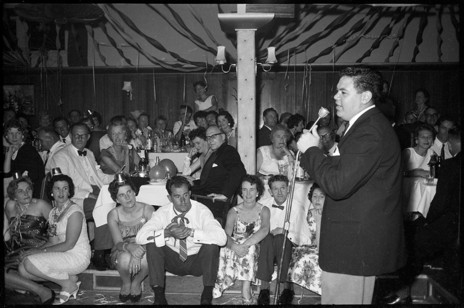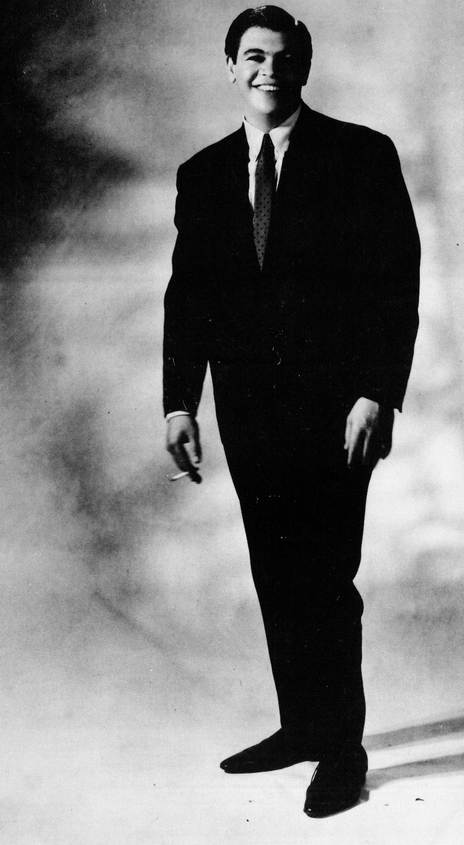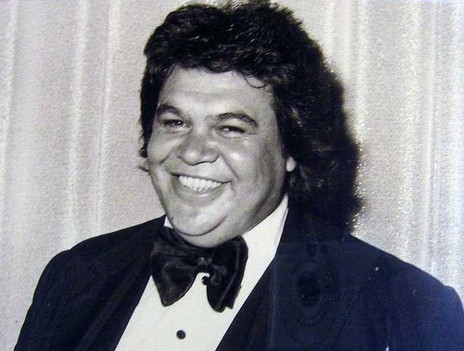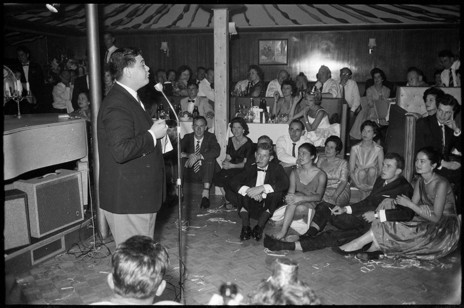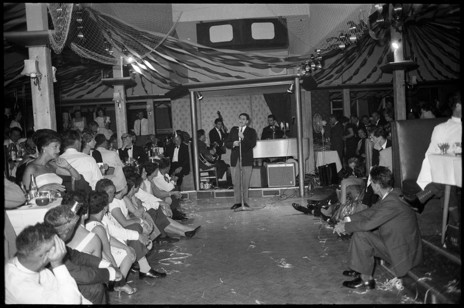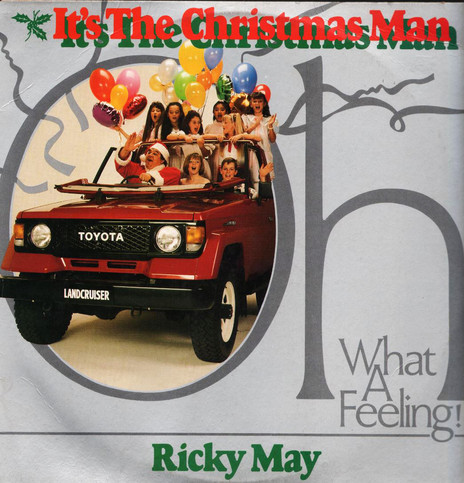Young Ricky and his brothers and sisters grew up in Onehunga, singing along with the Lever Hit Parade, radio’s weekly pop programme of the early 1950s. He learnt drums by sitting in with the Rhythm Rascals. Being surrounded by the music of the big bands, and growing up in the era of rock and roll, he had the perfect background for a singer who could swing and jive. Appropriately, his musical idol was Bobby Darin, a pop singer with jazz aspirations.
At the age of 15, May asked for an audition at the Picasso, a coffee lounge/nightclub on Greys Avenue, Auckland, near what is now the Aotea Centre. He performed ‘Mack the Knife’, and was offered a job as the Picasso’s odd-job man, taking tickets, serving coffee, and sweeping the floors. Several times a night he would step up on stage to sing a few items, in a suit bought for him by the club’s proprietors, Pat McSweeney and Tony Hyde-Harris.
The word quickly spread among jazz fans that this teenager was gifted.
The word quickly spread among jazz fans that this teenager was gifted. Bruce Kaplan, former entertainment writer for Truth newspaper, recalled to Chris Bourke in 2006: “He arrived fully formed and he had talent that stood head and shoulders above everyone else. When Ricky sang, people listened.”
May was soon appearing at other clubs, such as the Arabian, and the Montmartre – both in Auckland – and the notorious Sorrento in Wellington. At the latter, he was supported by Bruno Lawrence on drums and brothers Ronnie and Nicky Smith on piano and vibraphone. At the Montmartre, accompanied by Mike Walker on piano, he performed a Louis Prima routine, with Marlene Tong in the Keely Smith role. Musicians backing him never forgot the experience – May’s mercurial talent, and his penchant for changing tempos and keys on a whim, with only a click of his fingers as a warning.
Auckland entrepreneur Harry M. Miller signed May to his La Gloria label, where he recorded high-energy versions of ‘Let’s Twist Again’, ‘The Hucklebuck’, ‘I Could Have Danced All Night’ and ‘Ballin’ the Jack’, with backing bands led by guitarist Bob Paris. These all manage to amalgamate May’s two influences – jazz and rock and roll – while displaying his dexterity at emulating overseas stars. He told Carol Cromie in 1988: ‘Toni Williams was sort of Sam Cooke, everybody was Duane Eddy and I was New Zealand’s Chubby Checker. I thought it was an honour – nobody was looking for anything original then. [I just thought] great, I’ve eaten myself into a part."
May performed in Europe, Las Vegas and on the South-East Asia cabaret circuit, while maintaining a large following in Australia. He won the Entertainer of the Year award in Australia in 1979 and 1980, and was acclaimed for his 1986 performance in the role of Nicely Nicely Johnson in the musical Guys and Dolls. Perhaps this emphasis on live work, and his talent as a song interpreter rather than as a performer of original material, meant that his recording opportunities in Australia were limited. He released just four albums, all in the 1980s. The two most prominent were on ABC, and produced by the New Zealand expatriate musician Julian Lee. Fats Enough (1983) was a tribute to Fats Waller; in 1987 came its sequel, Just Foolin’ Around – A Tribute to Louis Armstrong. The 1981 album Ricky May (J&B) featured contemporary hits such as ‘The Way You Were’, ‘Love is in the Air’ and medleys of Sinatra and Bee Gees tunes; It’s the Christmas Man (RCA, 1986) was the obligatory Yuletide release.
May battled with his weight for most of his adult life, and died of a heart attack on June 1, 1988 after a performance at Sydney’s Regent Hotel. He was just 44, and had recently become an Australian citizen. In his adopted country he was as well respected for his tireless commitment to charities as for his efforts on stage. His funeral procession through the streets of Sydney stretched for two kilometres, and included entertainers, musicians, television stars, journalists, sporting heroes and politicians. The funeral service combined a traditional Māori farewell with a jazz wake.
